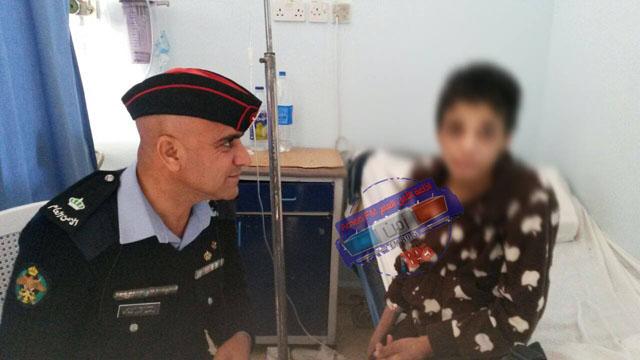You are here
Home-based early intervention planned for children with disabilities
By Dana Al Emam - Mar 13,2016 - Last updated at Mar 13,2016
AMMAN — The Ministry of Social Development seeks to engage families of disabled children under six years in a home-based early intervention programme, a ministry official said Sunday.
The programme, which was recently referred to the Prime Ministry for approval, entails providing a team of specialists (early childhood specialist, a psychiatrist and a physiotherapist) to provide services for children with all sorts of disabilities at their houses, said the ministry's spokesperson, Fawaz Ratrout.
This way, disabled children do not have to be "uprooted" from their homes to receive specialised care and can easily integrate into their families and communities, he said, adding that the move, if approved, would decrease costs and leave room for serving disabled children with no families.
Ratrout pointed to a lack of communication between persons with disabilities at care centres and their families, noting that "few" families maintain regular or frequent communication with their disabled family members, and "a lot" of them rarely or never communicate.
He cited the example of a 35-year-old man suffering from autism and intense mental disability, who was enrolled in one of the ministry's care centres over the past six years and recently returned to live with his family once the ministry could identify them.
The man was later found at the front door of the centre, neglected by his family and looking "untidy" with long hair and nails. The centre took him back in, according to Ratrout.
To address this issue, the ministry will have families of people with disabilities enrolled at care centres sign an official paper in which they commit to visiting their children and hosting them at their homes on holidays.
Families are usually either ashamed of their disabled members or do not know how to deal with them, especially since it could be expensive to look after them, the spokesperson noted.
"It is dangerous that persons with disabilities stay with such families," he told The Jordan Times over phone.
Ratrout said some 700 persons with disabilities receive care at the ministry's five centres, in addition to some 1,500 enrolled in private care centres, all of which witness "weak" familial communication.
Related Articles
AMMAN — Only 18 per cent of people with disabilities at public care centres received visits from relatives during Eid Al Fitr, the Ministry
AMMAN — The Cabinet has recently approved the mandating reasons for a by-law that could significantly improve disability care services in Jo
Nisreen, a 20-year-old woman with a mental disability, spent the past 15 years chained to the staircase in her family’s house, except at bedtime.












